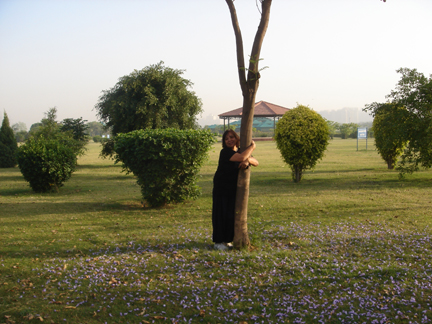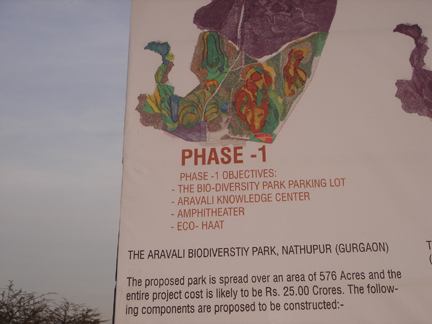Nature and wellness
Nature and Happiness
-Sharada Balasubramanian
The birds around me hopped and played,
Their thoughts I cannot measure: —
But the least motion which they made,
It seemed a thrill of pleasure.
The budding twigs spread out their fan,
To catch the breezy air;
And I must think, do all I can,
That there was pleasure there.
If this belief from heaven be sent,
If such be Nature’s holy plan,
Have I not reason to lament
What man has made of man?
These are a few lines from the poem ‘Lines written in early spring’ by William Wordsworth- a poem that was inspired by nature and how small visions of nature can enthral and bring happiness in life.
It is believed that people who spend time with nature are more content and more happier individuals. They have a purpose, definition and direction to life, which in turn culminates into being a happy individual. In today’s world, the exposure to nature has
become narrow.
Modernity isn’t too monotonous, it’s too safe. It is said that by denying intimate contact with nature, modernity denies us contact with risk and thus, we are missing out on happiness as well.
Here is an interesting quote on nature and happiness:
“Nature is beauty. Lands, plants, animals, skies, and oceans are all a part of nature that is shared with us. Nature is so amazing because it doesn't need the assistance of man to continue surviving as it has done for so long. Nature's goodness can also make
up for all that is bad or wrong with man. Man destroys but nature creates and gives birth to. Nature is peaceful and content. It seems as if nature is the backbone to happiness. If there was no nature there would be nothing left in this world to admire and
cherish.”

The loss of connect between urban humans and nature is be detrimental to health and happiness. It has been proved that green nature parks has a great ability of making people change into positive and happy people. Be being close to nature, observing them and
spending time in the green company can truly make us happy individuals.
References:
http://ecohearth.com/eco-op-ed/1163-is-nature-the-pathway-to-purpose-and-happiness.html
http://www.thehappinessinstitute.com/blog/article.aspx?c=3&a=1987
|
Nature and wellness
Greenery, health and poverty
-Sharada Balasubramanian
In urban India today, there are fewer parks and avenues for children to indulge in nature and activities like playing amidst greenery and trees. Unnatural surroundings in the recent past, has led to reducing the work of brains in human beings in the urban
areas, thanks to lack of trees. Unnatural surroundings affected our mental and physical health, and can powerfully alter how we think.
There is another important thing that needs to be thought about here. It is believed that living nears parks boosts health, irrespective of the social class one belongs to. Access to green spaces, it could be fields, or gardens, has an independent beneficial
impact on health. It also has an impact on health-related behaviour which counteracts the effects of poverty, according to research from scientists. The research established a link between serious illnesses and poverty. However, this is the first time that
scientists have shown systematically that the health gap between rich and poor can be halved with the help of green spaces.
In this research, the scientists have found the difference between those living in the greenest and least green areas was largest in death cases due to circulatory diseases.
Also, on the other hand, health issues like lung cancer has least impact of presence of greenery, predominantly because this is weakly linked to exercise. There was little space for the impact to happen.
These evidence show that there is a strong need for urban areas to retain and expand green spaces. The study was done by Richard Mitchell, of Glasgow University, and Frank Popham, of the University of St Andrews. They believe the planning authorities should
make green space available on grounds of health and well being of humans.
The scientists assessed the entire population of England under the retirement age, about 41 million people. They found out the cause of death for 366,348 people who died between 2001 and 2005. This was to analyze the links between fatal illnesses and access
to green spaces.
In their study, the found that “Populations that are exposed to the greenest environments have the lowest levels of health inequality related to income deprivation. Evidence suggests that contact with such environments has independent salutogenic effects, for
example, green spaces independently promote physical activity.”
"The implications of this study are clear: environments that promote good health might be crucial in the fight to reduce health inequalities."
Terry Hartig of the Institute for Housing and Urban Research at Sweden's Uppsala University writes: "This study offers valuable evidence that green space does more than pretty up the neighbourhood; it appears to have real effects on health inequality, of a
kind that politicians and health authorities should take seriously."

Sources:
http://www.childrenandnature.org/news/detail/study_finds_access_to_nature_increases_longevity
http://www.boston.com/bostonglobe/ideas/articles/2009/01/04/how_the_city_hurts_your_brain/
|